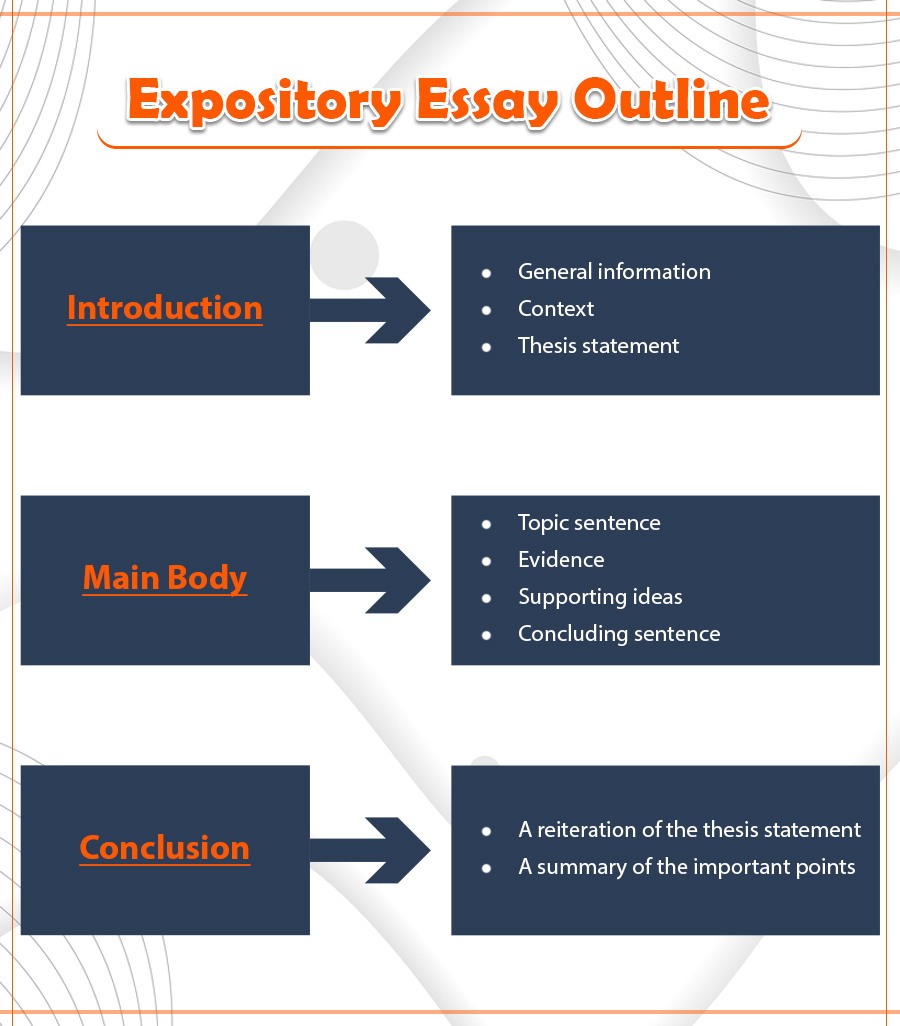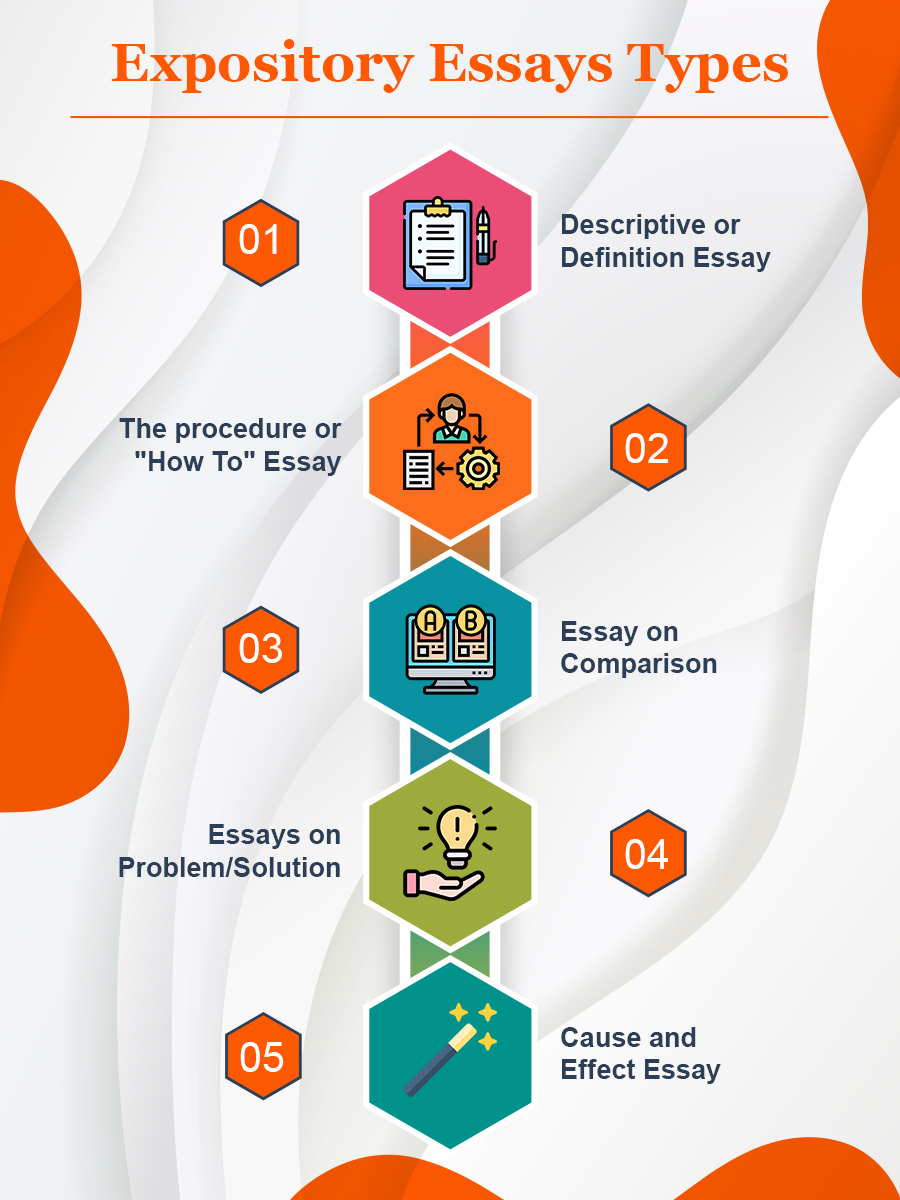When it comes to demonstrating your writing skills, working on expository essays is the most effective mode of written communication. Indeed, essays express the broad characteristics of perspective and ideas that need to be shared. If you choose to write lots of essays, you can develop better intellectual skills and writing attributes. An expository essay is one of the four types of essays: persuasive essay, descriptive essay, and narrative essay. This type of essay lets readers get more insights on a particular topic. Let’s uncover the depth of the expository essay with us and know how to compose the complete essay with proper insights.
What Is An Expository Essay?
Expository essay definitions focus on explaining a topic more precisely. This type of essay demands a proper process of investigating your selected topic and collecting information as needed. In an expository essay, you have to describe everything in a well-structured manner so that readers can understand what you want to tell them.
In detail, expository drives come from the word “exposition”. According to the dictionary, exposition means “a comprehensive description and explanation of an idea or theory.” Now, it is easy to predict the crux of an expository essay is to explore any topic or idea using sufficient evidence.
Key Points of Expository Essay
- Explains a topic or idea based on proper information.
- Communicates factual information precisely.
- More than entertaining or persuading the reader on something.
- The prominent purpose of an expository essay is to inform, explain, or describe.
- Writers act as a teacher.
- An expository essay acts as an assessment of your knowledge and comprehension.
How to Write an Expository Essay?
The primary objective of an Expository essay is to describe a topic in a logical and transparent manner. Without frills, these articles give a fair and impartial appraisal of a subject based on facts—with no allusions to the writer’s ideas or feelings.
A common expository writing question will include the words “explain” or “define,” such as “write an essay describing how the computer has affected the lives of students.” There is no instruction to generate an opinion or make an argument on whether or not computers have affected the lives of pupils. The prompt only requests that the writer “explain.” That is not to say that writing to explain is simple.
What really is the objective of Expository writing?
The goal of an expository essay is to explain a subject or idea to the readers. Your writing should be clear and straightforward. Do not presume that your audience is familiar with the topic or the concept of an explanatory essay.
To sound more persuasive and dependable, use solid facts and scientific proof. It is best to avoid expressing your perspective because this is an academic piece of writing. Regardless of the style of an Expository essay outline, you are about to write, you should remain impartial and unbiased in your statements and adopt a formal tone.
Expository essays are quite frequent as school assignments since they not only assist to assess students’ academic achievement but also allow young people to build writing abilities that will be beneficial in the future.
To produce a decent paper, you must thoroughly study the topic and be prepared to explain your position simply. How to write an Expository essay to be accomplished? The objective here is to comprehend the framework and aim of the expository essay. If you are having trouble writing, you can seek guidance from our do my papers experts.
What characterizes expository essay topics?
Because the major goal of the expository essay is to describe a topic logically, the themes must have signal words that demonstrate this activity. Good expository essay topics typically begin with the words “describe,” “explain,” or “define.” They demonstrate to the writer the purpose of the content he is about to write.
The topic’s signal word determines the direction of this writing and thought generation. It is critical to stick to the word’s denotation. For example, if “to define” is included in the expository essay subject, you must offer a comprehensive characterization of the thing without reflecting on its impact on other objects.
Expository Essay Outline

When contemplating how to format an expository essay, you may want to start by outlining with a pen and paper. This will keep you on track and provide you with a template that will show you where to begin.
Typically, writings such as the Expository essay structure follow a five-paragraph pattern, which includes one paragraph of introduction, three key ideas that make up the body of the essay, and a one-paragraph conclusion. Of course, you don’t have to use this structure if it doesn’t work for you, but it’s a good idea to keep it in mind as you create your outline.
Consider creating a visual organizer to help you arrange your thoughts while you think about your issue. This can range from as basic as a brainstorming session with oneself, an idea map, or a Venn diagram, to more complex data maps based on studies you’ve conducted yourself.
Most instructors want their students to write expository essays in the typical 5-paragraph format:
5-Paragraphs Format:
Introduction
- General information
- Context
- Thesis statement
Main Body
- Topic sentence
- Evidence
- Supporting ideas
- Concluding sentence
Conclusion
- A reiteration of the thesis statement
- A summary of the important points
5 Various Types of Expository Essays
Expository essays can take many various shapes, depending on the writer’s goal: do you want to explain something or illustrate how one item is superior to another? Do you need to explain how something works or how to produce something?

The following are some of the most prevalent types of explanatory essays:
1. Essays on Descriptive or Definition
This sort of Expository Essay Structure is intended to describe a location, an event, or an idea via the use of the senses. The theme might be anything from a real item like an animal, city, or tree to an abstract concept like relationships, love, or freedom.
2. Essays about the procedure or “How-To”
This style of essay discusses how something is done or made. One useful method is to include the actions that the reader may do.
This can involve any of the following subjects:
- A laboratory experiment is an example of a scientific procedure.
- Cooking, baking, fixing, or making anything are examples of life skills.
- Natural processes, such as animal and insect metamorphosis.
- Mechanical or technical operations, such as the operation of a piano or a computer.
3. Essays on Comparison
This essay contrasts and compares at least two objects, locations, people, or concepts. This involves emphasizing their commonalities as well as emphasizing their contrasts.
Picking topics around which to build comparisons is a smart strategy to write this style of essay. For example, when comparing two cities for livability, you might want to consider population, the quality of accessible schools, accessibility, and convenience, or pollution and stress levels, among other things.
4. Essays on Problem/Solution
This sort of essay addresses a problem and suggests a solution.
The ideal strategy to create this sort of essay is to provide several viable answers. Then, underline the benefits and drawbacks of each. Present your suggestions for the reader based on those advantages and negatives, but still, allow the reader to decide for themselves. A problem/solution essay may alternatively have only one solution, in which case the reader is not required to choose a decision.
5. Cause-and-Effect Essay
The purpose of this essay is to discover the link between two items to determine if one thing causes another. To establish the cause and effect link between the two ideas, you may need to give supporting evidence.
Topics for Expository Essays
Writing integrates multiple others at once, and it makes your work easier in many ways because you’ve probably already got some experience with them.
But how do you choose an Expository essay structure topic? In general, such assignments are beneficial since they enhance your critical thinking and teach you how to assess things from a different perspective than you are accustomed to. The topic is highly crucial in this case since it decides how fascinating your study will be for both you and your readers. We’ll assist you in making the best decision depending on your specific interests.
1. Topics on Social Issues
- Social Issues in Rural vs. Urban Areas
- What is Poverty?
- What is the ratio of Unemployment in USA?
- The Illiteracy rate in US?
2. Education Subjects
- Early childhood education has a favorable influence on children’s minds and development.
- Why is learning a foreign language vital and beneficial?
- Teaching has traditionally been seen as a noble vocation. Why?
- Is internet education more successful than traditional education?
3. Topics on Ethical Issues
- What is the distinction between plagiarism and authorship?
- How can social media sites demoralize people?
- Why do we receive so many lies on various news channels, both real and fake?
- Is it ethical to colonize space after nearly destroying our home planet?
Things To Discuss On How to Write An Expository Essay
- The first paragraph of an expository essay should render a clear, concise, and defined topic sentence. So, it will help your readers what you are going to express in your essay as a writer.
- Body paragraphs should contain evidence and proper factual information. Make sure every paragraph should be centered on a specific general idea revolving around your main topic.
- Maintain a clear and rational transition between the introduction, body, and conclusion parts. If you fail to offer smooth transitions between each part of your writing, readers can’t get your arguments. As a result, your expository writing will collapse.
- Make sure to not lose your uniqueness and creativity. While sharing your arguments on a piece of paper, you should not lose your creativity even if you are about to share factual information.
- Infuse proper support or evidence in an expository essay to present your thoughts about the topic precisely. If you are lacking statistical or factual evidence, you should demonstrate the level of reasoning skills.
- Just go beyond the restating the topic sentence in your conclusion part and allow it to be more engaging.
Example of Expository Essays
Several forms of expository writing are utilized for various objectives. Let us look at a few examples. To begin, a descriptive essay is employed when the writer wants to explain the traits or attributes of a person, location, item, process, event, and so on. More than any other style of expository writing, descriptive essays aim to excite the narrator’s senses.
✅Example
If you wanted to explain chocolate chip cookies, you might write: ‘Chocolate chip cookies are one of the world’s most popular sweets.’ They might be crunchy or soft and have a pleasant aroma evocative of a bakery.
They have a delicious flavor and melt on your lips. They ‘wrinkle’ up in the oven as they bake, and the mixture of the cracks and crevices in the dough with the tongue chocolate chips on top makes them difficult to resist.’ Using sight, smell, taste, and touch, these phrases have accurately described chocolate chip cookies.
You may also explain a process, like running a marathon, by telling the reader how much you sweated, why you lost your breath climbing up hills, how they couldn’t see three feet next to you due to fog, and so on.
Final Thought
Whenever you finalize expressing your points and draw to a close, start your conclusion by briefly restating your primary ideas and thesis. You can then come to a decision in one of the numerous ways. For example, you may rephrase the essay to have a greater meaning or relevance, or you could pose questions that you didn’t or couldn’t address.
Hopefully, you’re now well on your way to creating greatest expository essay! If you need some more hints, have a look at the writing advice given above.
Give a good start to your expository essay with our professional essay writers. Find out the right rhythm to share your knowledge and information through your essays using the guidance of our writers. Opt for our content writing services and let our writers work on your essays. They can help you to boost your writing skills and amplify your grades. So, grab our experts’ help and explore what is an expository essay.
